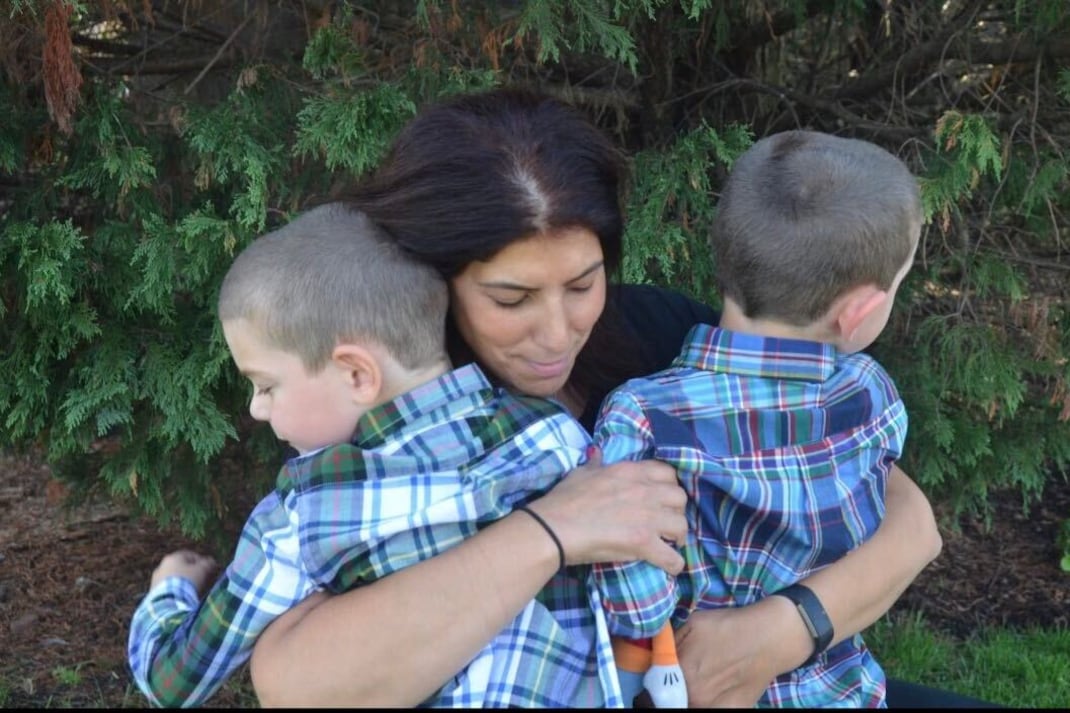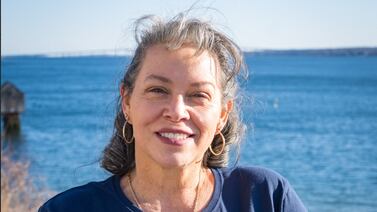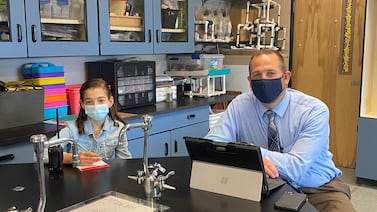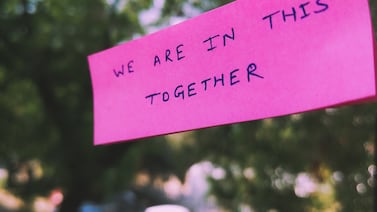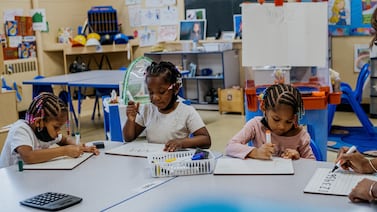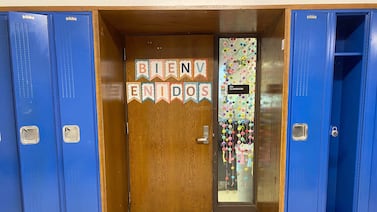This is part of an ongoing collaborative series between Chalkbeat and THE CITY investigating learning differences, special education and other education challenges in city schools.
The city Department of Education promised an ambitious program to help nearly 200,000 students with disabilities, setting aside nearly a quarter billion dollars for after-school and Saturday sessions to help them catch up in the wake of pandemic disruptions.
But the city’s plan, financed with federal relief funding, is once again facing a delayed start date at many schools, and it’s unclear when the program will reach most students, Chalkbeat and THE CITY have learned.
The special education academic recovery program is now scheduled to begin as late as Dec. 6 for the highest-need students in all city-run schools, city officials confirmed. That’s less than three weeks before winter break starts on Dec. 24, and nearly three months into the school year. The program was originally slated to begin in October or early November and then pushed back to Nov. 15.
“It’s November and nothing — what a shame!” said Bronx mom Jeannine Timpone, who’s been eager for her 13-year-old daughter Victoria to participate in the academic recovery program.
Department officials have split students with Individualized Education Programs, also known as IEPs, into three priority groups with staggered timelines for launching the additional services. Department officials were unable to say when the other students eligible for special education recovery services, who have less acute needs than the first group, will begin the program or how many students are in each of the three priority groups.
The plan to offer additional small group instruction and services such as speech and occupational therapy outside the school day has won some praise from advocates, and appeared to be a more aggressive plan than what some other large school districts have launched.
But families and advocates are frustrated that the program’s rollout has been scattershot, with little communication about what specific services will be provided and key details about transportation still up in the air.
Scaling up a new program for students with disabilities is a massive undertaking, and the city often struggles to provide mandated special education services during the regular school day. The education department is tasking each school with the responsibility for spinning up its own program, though some school leaders still have questions about how they will be able to provide the services students need.
‘Making every effort’
There are signs that education officials are worried about finding enough staff who are willing to work overtime for it. Schools are now allowed to hire educators who are not certified in special education for the program, a break from the city’s original plan, according to guidance sent to principals obtained by Chalkbeat and THE CITY.
In another last-minute change, despite the requirement that students attend school in-person this year, city officials are allowing schools to offer the recovery program virtually.
Department of Education officials said they pushed back the start time to give schools “flexibility” in launching the services, which will be offered in cycles of 10 or 13 weeks. Students will be offered additional cycles if they don’t make up enough ground, according to department guidance. Schools are expected to receive funding for the program in their budgets this week, officials said.
“We’re making every effort to support our students with disabilities as they recover from the impacts of the pandemic, and all students with IEPs will have access to after-school and Saturday programs as part of our Academic Recovery Plan,” said education department spokesperson Sarah Casasnovas.
“Many of our schools have already begun reviewing student progress and planning their programs, and our students with the greatest needs will begin receiving services in the coming weeks.” Casasnovas added that “the vast majority of schools will begin providing services this month.”
Education department officials said a small number of schools have already started offering the services, though they did not say how many.
The department is also opening two sites in each borough for students with disabilities who have significant sensory issues that affect their learning or behavior. The SEED program, which will also operate after school and on Saturdays, is expected to reach roughly 3,500 students through June.
Officials said schools will reach out to families who have “the greatest need.”
“Where is all the promised and talked about help and recovery for these kids? They mentioned after school and weekends? Lots of talking up top, but no action.” — Bronx mom Jeannine Timpone
Parents in the dark
Timpone said she’s been unable to get any information about the academic recovery program from her daughter’s school, the Van Nest Academy.
She said she blames disorganization at the DOE for why she hasn’t yet been told if the school will be offering the program, whether her daughter was placed in the first or second group, and when the makeup sessions will be held.
“Where is all the promised and talked about help and recovery for these kids?” said Timpone. “They mentioned after school and weekends? Lots of talking up top, but no action.”
Other parents said they’ve been given the wrong information about program eligibility.
Jessica Colon, whose son missed out on many of his services during pre-kindergarten because of the pandemic, said she was told her school, the Vida Bogart School in The Bronx, isn’t considering him for the recovery program because he’s in kindergarten.
But education officials confirmed that all students in grades K to 12 who have IEPs are eligible.
“I don’t think the schools have gotten any guidance,” said Colon, whose son is supposed to receive speech, occupational and physical therapy.
“If they’re not going to have him participate in that program, I still feel like I’m entitled to those compensatory services,” she added. “We tried teletherapy, but my son does not respond to that.”
Even at schools that have been communicating about the program, some parents say the options they’ve been offered won’t necessarily work for their kids.
“I don’t want to say no to anything, especially if it’s going to benefit my kids. But three extra hours is probably not going to work for them — it’s just too long.” — Brooklyn parent Sandra Pelligrini
Sandra Pelligrini has twin sons in second grade at PS 164 in Borough Park, Brooklyn, who are eligible for the recovery services.
She said a staffer called her Oct. 26 to ask if she wanted her sons to participate, and whether three extra hours on each Tuesday, Wednesday and possibly Thursday afternoon would work.
“Obviously, I would be interested, but my kids are 7 years old. It’s a 9-hour day,” said Pelligrini. “I don’t want to say no to anything, especially if it’s going to benefit my kids,” she added. “But three extra hours is probably not going to work for them — it’s just too long.”
Pelligrini said she hasn’t heard back from the school since the initial phone call gauging her interest.
A bumpy rollout
Even in a typical year, many schools struggle to staff special education positions. But with three consecutive school years disrupted by the pandemic, and with many educators experiencing burnout, it is an extra challenge to entice educators to work overtime.
Education department guidance says that the program’s small-group instruction should include a maximum of six students, meaning schools that serve many students with disabilities may need a significant amount of staff for the program.
“Principals have been finding out who wants to do this program, and it’s been a hard sell,” said Mark Cannizzaro, head of the union that represents principals and other administrators. “There are not enough teachers, especially special education teachers, to staff these positions.”
At the Metropolitan Expeditionary Learning School in Queens, co-principal Pat Finley said the school has been able to find nearly enough staff for group instruction. But he noted the education department has not laid out clear plans for providing services such as speech, occupational, and physical therapy, which are also supposed to be provided during the after-school and Saturday sessions.
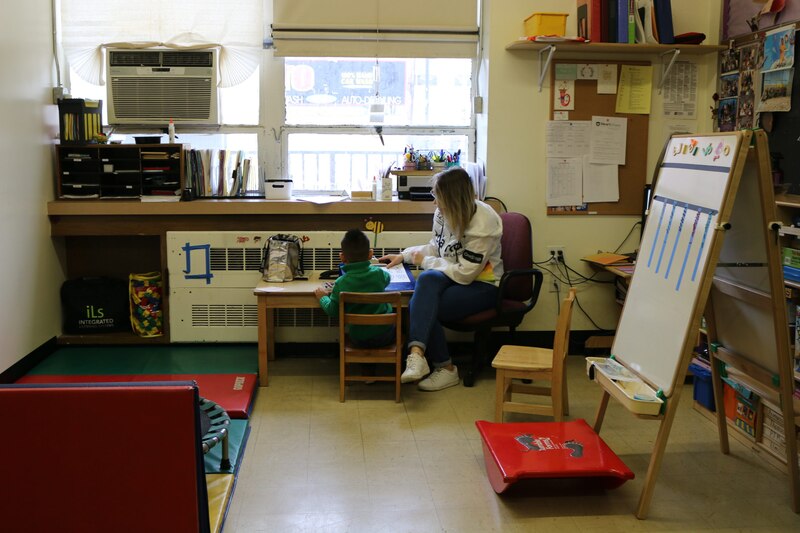
The school, for instance, does not have an occupational therapist on staff this year and is relying on a voucher program to provide that service to families. “I have no idea who is going to provide that service, when it’s going to happen, or how it’s going to happen for families,” Finley said.
The city has hired or is in the process of hiring 300 occupational, physical and speech therapists since July, department officials said last month. In areas with shortages, schools can assign service providers from other schools or the city will “assign contracted providers.”
It’s also unclear what kind of transportation students will receive. Department officials have promised that students who typically receive busing as part of their special education learning plans will be eligible for transportation, but they indicated that could involve being reimbursed for car services rather than a yellow school bus.
They’ve asked schools to program after-school recovery services first for the students who require busing, in order to give the Office of Pupil Transportation at least 30 days to schedule the after-school routes. Students attending programs on Saturdays will receive MetroCards, according to a webinar conducted by education officials last month.
Officials did not say if students who don’t have busing listed on their IEP but still take the bus to school, such as students in temporary housing, would be guaranteed transportation.
Finley said he’s frustrated that the city hasn’t communicated more clearly with schools or given them more leeway to design their own programs.
“I’m certainly not against the idea of special ed recovery services,” Finley said. “The implementation seems scattershot, not thought out and not thoughtful of the challenges schools already face on the ground.”
Long waits bring harm
City officials believe that the afternoon and Saturday programs will help students with disabilities catch up.
But for those who need more individual help, or are unable to attend after-school and Saturday sessions, families should still be eligible for what are known under federal law as “compensatory services.” The city is required to provide such make-up services if a student did not receive an “appropriate” education, advocates say.
In November 2020, the Department of Education revealed that 46% of special education students had received only some or none of the services they were entitled to in the prior school year — largely because schools shuttered and went to all-remote learning when COVID struck in March of that year, according to a recent report by state comptroller Tom DiNapoli.
As of January of this year, about 25% of students with IEPs — roughly 54,000 — weren’t receiving all of their mandated services, the report said.
To get access to those services, families would typically have to individually file complaints through an “impartial hearing” process, which is overseen by an administrative judge and has been logjammed for years.
The non-profit organization Advocates for Children filed a lawsuit against the city last fall seeking to force the education department to create a more streamlined process without requiring parents to file complaints that often take many months to resolve.
So far, the case is still winding its way through the courts and has not resulted in a new process for requesting those services.
“These are students who did not receive an appropriate education from March 2020 through at least the end of the 2021 school year and possibly continuing now,” said Rebecca Shore, the litigation director at Advocates for Children. “The longer they have to wait to get those compensatory services they need, the greater the harm will be to the students.”


